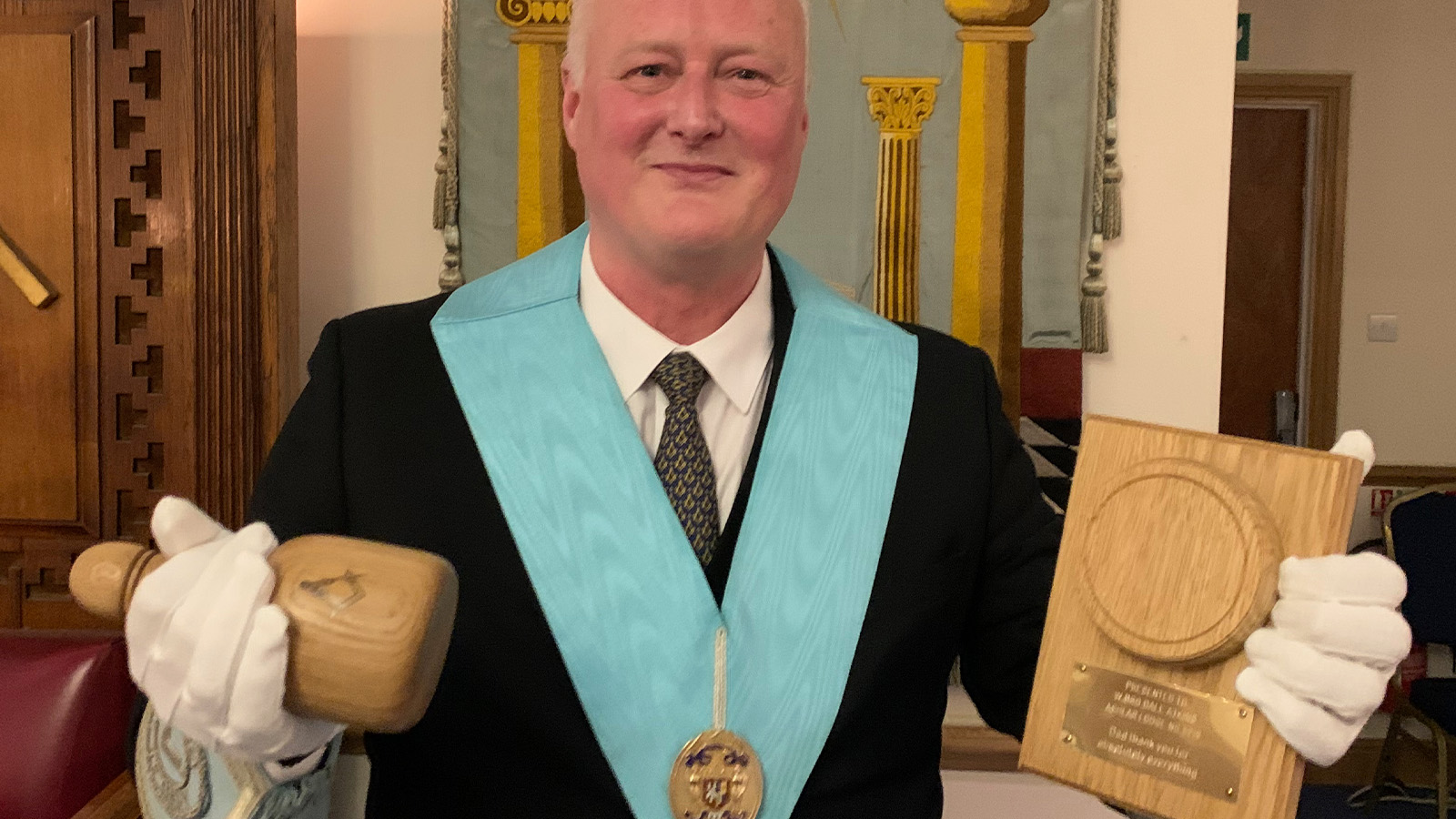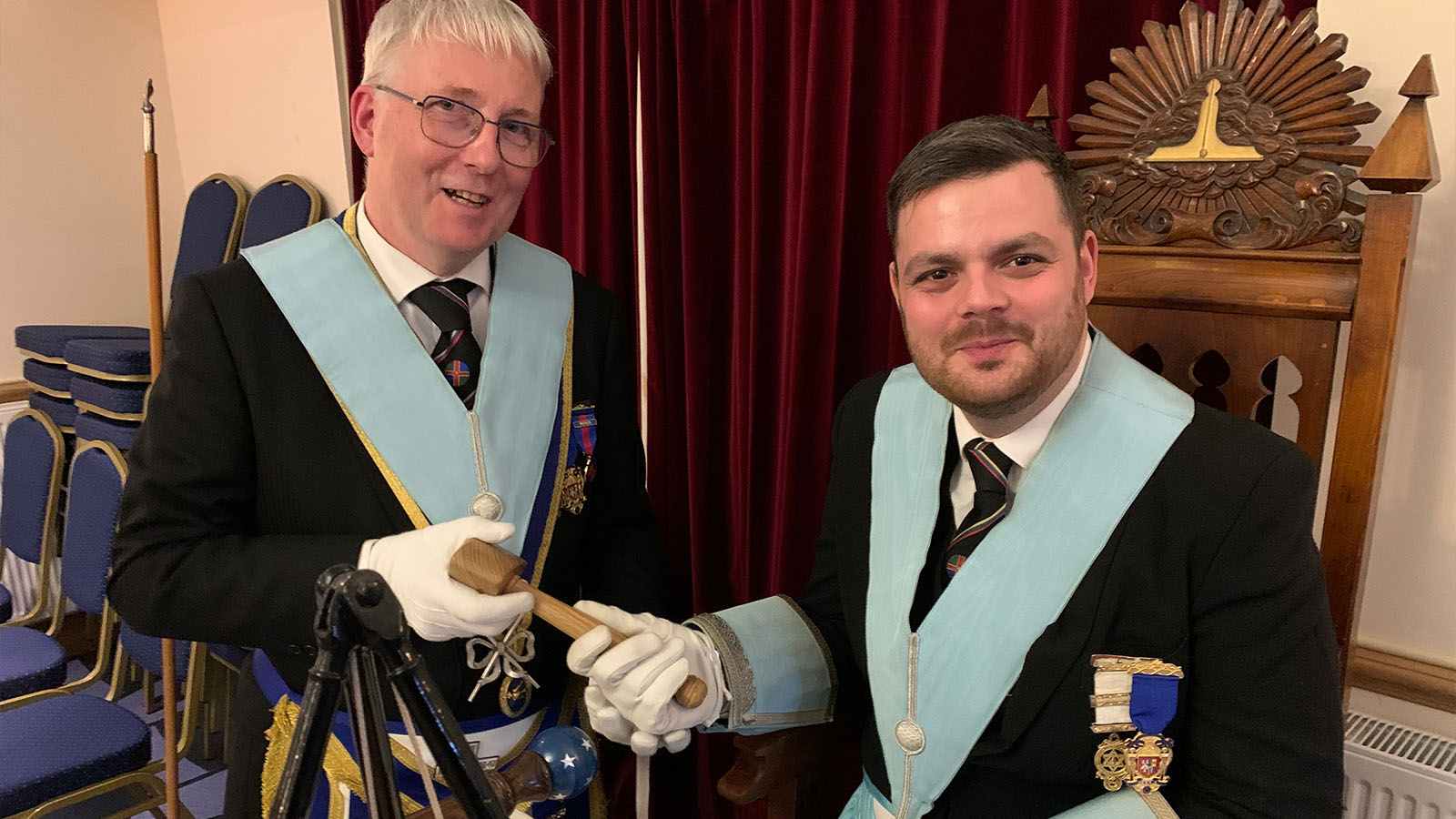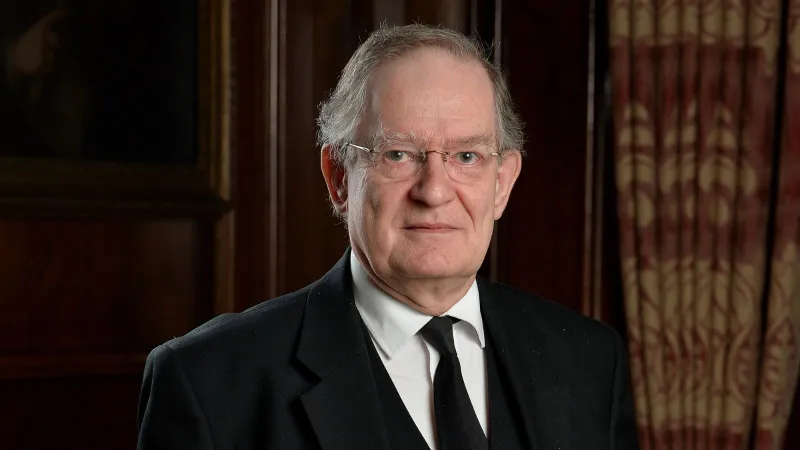Two fathers and two sons made Ashlar Lodge’s installation memorable in Lincoln - and one of them wasn’t even in the building!

The fathers were Dale Atkins and Ian Taylor; the sons Tommy Atkins and Andrew Taylor. Ian gave Andrew his gavel and column as he placed him in the Senior Warden’s chair, and Tommy would have been Junior Deacon had he not been ill in bed at home.
Much as he wanted to be present – and his dad wanted him to be there – his illness spoiled a surprise presentation he’d set up. He had arranged to spring on his dad the surprise gift of a unique gavel and block. In a letter read to Lodge members, and given to Dale to take away, Tommy said he deeply regretted not being there, because they had both been looking forward to what would have been a landmark family event.
The inscription on the turned oak soon-to-be-family heirloom reads: 'Dad; Thank you for absolutely everything.'
Meanwhile...

Elsewhere in the Province of Lincolnshire there was further evidence that Freemasonry continues to run in families, this time provided at least other three times so far this year at Boston, Grimsby, and Scunthorpe.
At the Lodge of Harmony in Boston, Tom Kemp was presented for Installation by his father Chris, who was Master in 1997. Tom’s grandfather Alan had been Worshipful Master in 1976, but he sadly passed away in 2012.
The Lodge of Harmony has a tradition of reading an extract from past lodge minutes at its meetings. Bryan Skinner opted to go ‘modern’ for this meeting by reading an extract from 1976, the year the new Worshipful Master’s grandfather was Installed, to add to the rich history of the lodge.
At Grimsby Peter Hart installed his son Stuart Hart in the Chair at Wellow Abbey Lodge, and in Scunthorpe new Pharos Lodge initiate Jack Bruce was placed in the care of a mentor who’s been mentoring him for his whole life so far – his father Michael Bruce.
It’s said that the son of a Freemason who becomes a Freemason in his own right is called a Lewis, named after a simple but ingenious device employed by operative Masons to raise heavy blocks of dressed stone into place. The term was adopted into English Freemasonry during the 19th century, said to have been chosen because it was a son’s duty to 'support the sinking powers and aid the failing strength of his father.'


